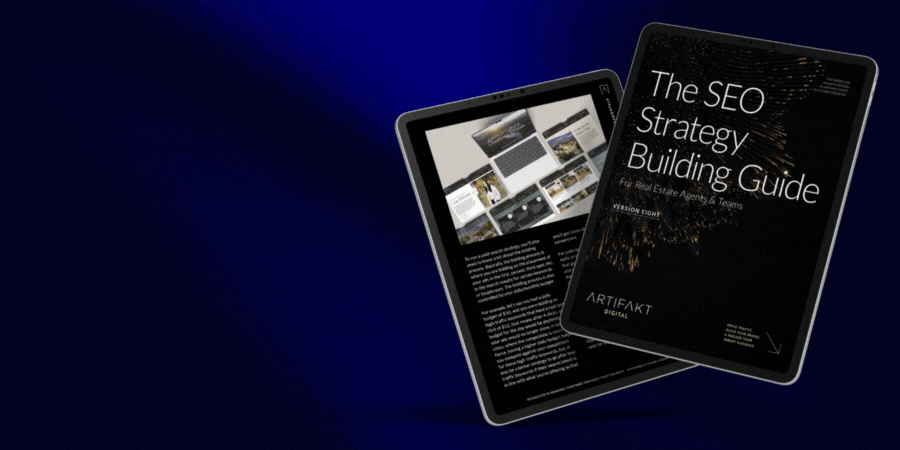Building a Successful SEO Strategy for AI Search Results

Right now, search, and more specifically, the way we search, is rapidly changing.
The experience we’re all most familiar with is searching online for something we want an answer to, getting a search results page (most often in Google), and clicking through multiple links to websites where we can get the information we need for a definitive answer (and often, to discover a lot of other things in the process).
But with the introduction and huge adoption of AI search results, overviews, and summarizations, it’s not just the way we search that’s changing – the way we get answers is changing too – or at least, being pushed further down the page.
It seems that it’s highly likely that in the future, people will just be given an answer by an AI and take it as the truth (especially for answers to easier, more straightforward questions).
So, does that mean SEO, and the process of getting people to discover your website, is dead? Absolutely not. It simply means that your SEO strategy needs to be modernized to make sure you’re planning for AI search results (and a successful SEO strategy should be changing and adapting all the time anyway, especially in the last year by adopting AEO into your strategy).
With search changing, and more and more people seeming to adopt (and trust) an AI search engine for the answers to questions, how can you compete? How can you best position your SEO, content, and marketing strategy to make sure you’re still getting found in those AI search results, and ultimately, getting people to know you, your business, and your brand exist?
★ Want to learn more about AI? Have a look at these posts:
- When (and When Not) to Use AI in Your Real Estate Content Strategy
- Using AI to Build a Personalized Real Estate Marketing Strategy
- Creating a People-Powered, People-First Content Strategy
The answer isn’t to give up what you’re currently doing for SEO, but rather, to add to what you’re doing to make sure you’re leveraging both traditional search results and AI search results, especially based on who your target audience is and how they’re most likely to search for answers.
The good news is that Google AI search results, as well as other AI search engines, continue to cite reputable sources that back up the information they’re giving in search results when someone does a search, and it’s then up to the searcher to decide if they want to explore that further by clicking into those links (and in Google’s case, it still also shows organic, traditional search results as well).
Keep in mind, that’s not entirely new as zero-click searches and rich-snippets search results have been around for quite awhile (which is where you get the answer to your question, right in search results without needing to click through – like if you search for “what time is it in San Diego”).
And while that will likely result in fewer people clicking through to websites and just accepting the answer that the AI search results gives them, it also means that if someone does click through, they’re interested in doing a deeper dive into the topic they searched for, so they’re more likely to be engaged about the topic (and more likely to convert into a contact or lead).
With AI search results taking some traffic away, resulting in fewer visits, page views, and users, measuring success means looking at your analytics differently. Rather then focusing purely on amount of traffic your website gets, you should shift to focus more on engagement metrics, which are a much better metric for measuring the success of not just your SEO strategy, but your overall digital strategy as a whole, anyways.
If AI search results deliver more engaged traffic, then making sure you deliver a more engaged user experience is key in seeing success as the two go hand-in-hand when it comes to building a digital strategy that gets results.
★ If you want to do a deeper dive into understanding engagement as it relates to your digital strategy, have a look at this post called: Measuring the Success of Your Digital Strategy Through Engagement.
★ Want to learn more about building a successful SEO strategy? Have a look at these posts:
- How to Do Keyword Research for Your Real Estate SEO Strategy
- Understanding SEO Titles and Meta-Descriptions on Your Real Estate Website
- The Three Components of a Successful Real Estate SEO Strategy
- Building a Successful Real Estate Off-Page SEO Strategy
- Understanding SEO Titles and Meta-Descriptions on Your Real Estate Website
While Google has put out many articles about best practices about how to position your website for AI search results (like this recent one right here), across all of the advice they’ve provided, one factor is consistently brought up: creating high-quality content that provides value to the user.
So, regardless of how search changes, at its core, a strong and modern SEO strategy that works toward ranking in both traditional and AI search results should be rooted in a strong content strategy. (In addition to all the other basics, like a technically optimized website, good user experience, etc.) That’s because not only does AI search place an emphasis on high-quality content, but so do the people in your target audience reading it.
Google (and most AI search results), prioritizes high-quality, purposefully written content, but more specifically, content that:
- Answers real questions in a meaningful way,
- Demonstrates expertise,
- Showcases authority
- Keeps users engaged (and helps them)
- or all of the above.
To be considered high-quality, your content has to meet EEAT guidelines. EEAT stands for: Experience, Expertise, Authoritativeness, and most importantly, Trust.
- Experience: Your content demonstrates first-hand experience and/or knowledge about a topic.
- Expertise: Your content is written by someone who is knowledgeable and has relevant background to write about that topic.
- Authoritativeness: Your content is written by an authoritative source with a good reputation in their industry.
- Trustworthiness: This is an aggregate of the previous 3, and works towards proving that your content is reliable, transparent, and accurate
High-quality, well-written content that meets EEAT is one of the most important, effective things you can focus on producing as part of a modern SEO strategy that performs well regardless of how people search for and find your website.
★ Want to learn more about building a content strategy? Have a look at these posts:
- The Benefits of Building a Long-Form Real Estate Content Strategy
- Creating a Content Strategy Based On Emotional Search Intent (To Get Better Leads)
- Creating an Evergreen Real Estate Content Strategy
At the end of the day, SEO isn’t dead – not by a long shot – but even though the way people search might be changing, the end goal of your target audience discovering you at the right time, and for the right reasons, still remains, and a successful SEO strategy is all about making that happen regardless of how someone searches.
Want to learn more about SEO and get more traffic to your website? Our SEO Strategy Building Guide is a mix of curated content and self-guided workbook that will help provide insight on how you can build and implement a modern SEO and overall search strategy.




















